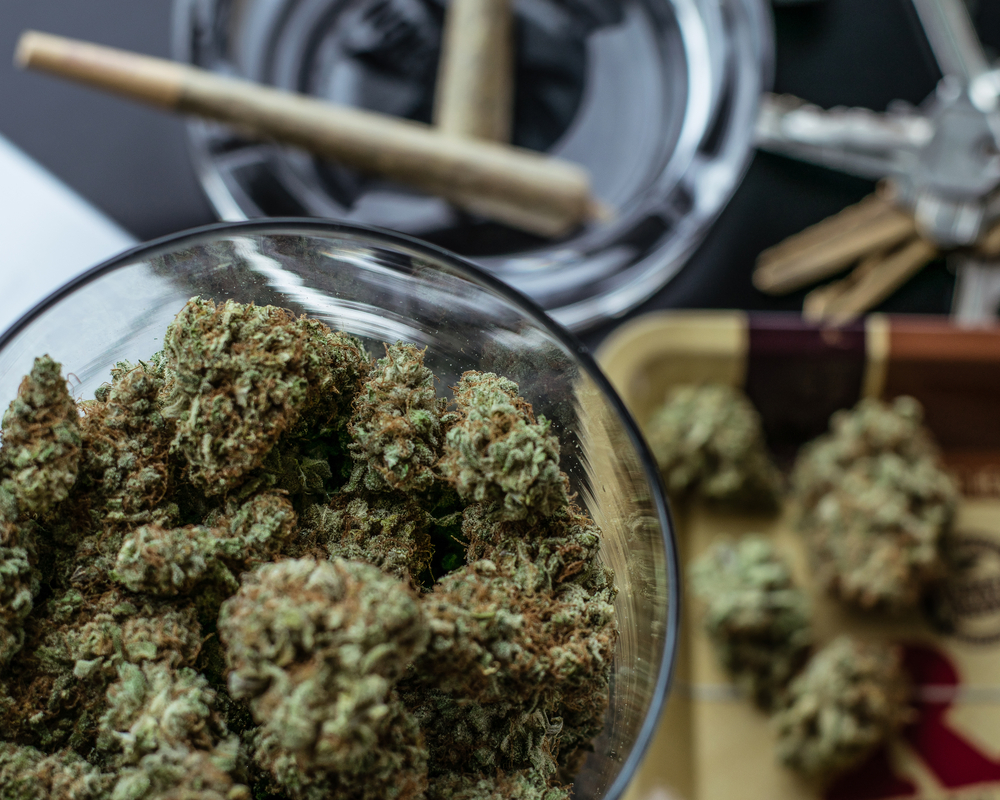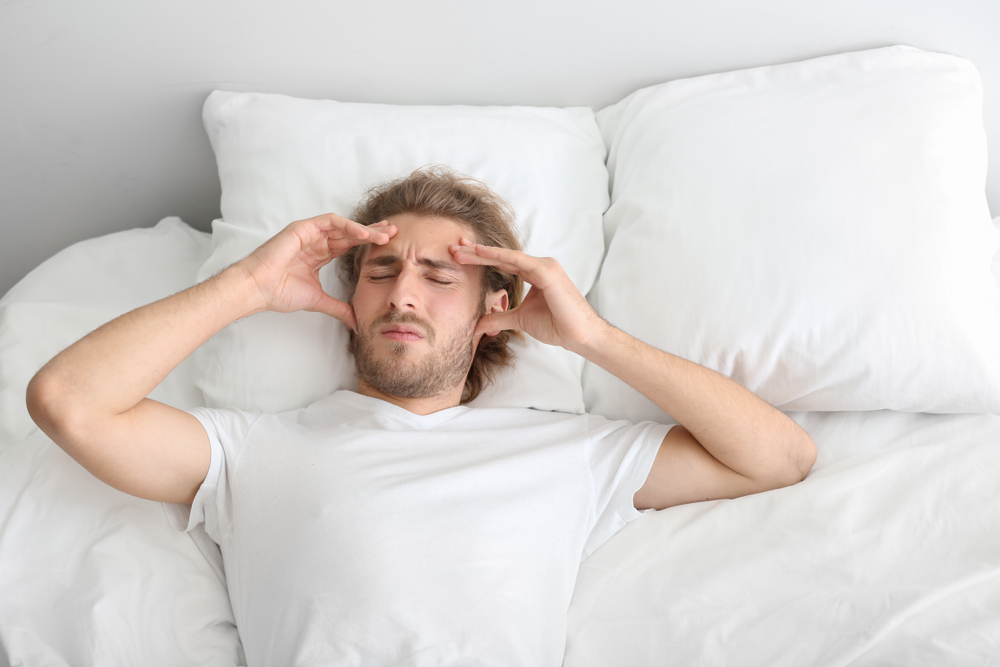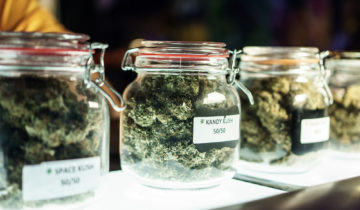Cannabis for sleep has been enjoyed for thousands of years. Humans have cultivated it for various purposes, ranging from its hemp for crafting, its bud for its anti-inflammatory and pain-relieving effects, and all the way to its insomnia fighting abilities.
Prominently, a relatively large amount of adults experience some sort of sleep disorder in their life, with estimates ranging from about 30 to 40 percent of all adults in North America. What’s even worse is that a staggering 10 to 15 percent deal with these sleep problems chronically.
For something that we all spend an incredibly large amount of life with, it can be largely distressing to not be able to get the rest you need to function at optimal performance.
Thanks to the advent of legal cannabis, there is a more easily accessible, and natural solution to these sleep disorders, all without the nasty side effects of many pharmaceuticals.
Keep on reading as we uncover the solution to your sleeping problems.
Cannabis for Sleep & The Importance of Being Well Rested

We spend about one-third of our lives asleep in a resting state. Though many people will boast about sleeping less to grind their goals, inadequate rest can lead an individual to health complications ranging from weight gain to elevated stress levels, which can age the body and mind.
On the flipside, an individual who achieves a rich and uninterrupted deep sleep may reap the rewards of lower stress, fewer cravings, more focus, and higher productivity.
As such, the benefits of getting a good night’s sleep far outweigh any other option available, however, it should be noted that oversleeping does have its complications as well. These include headaches, obesity, depression and anxiety to name a few.
Here are some of the reasons why being well-rested can be beneficial to you:
Lack of Sleep can Cause you to Gain Weight
Research has pointed out that poor sleep can cause problems in more ways than one.
Individuals who rank poorly in sleep have a higher chance of gaining excess weight through binge eating and elevated stress levels. Poor sleep has been linked to increased levels of ghrelin, the hunger hormone that signals you to consume food to replenish energy stores and lower levels of leptin, the satiation hormone that tells your body that you have had enough to eat.
The research has also found that poor sleepers usually have significantly higher Body Mass Indexes (BMI) when compared to those who consistently get a good night’s sleep.
The manipulation of these hunger hormones can cause people to overconsume unhealthy foods that they would not necessarily need, resulting in increases in Body Mass Index.
Poor Sleepers Have a Higher Chance of Developing Obesity
As we’ve previously pointed out, research has revealed that poor sleep also results in excess calorie consumption. Adding to this, those who do not sleep well, and for short durations have a higher chance of developing obesity.
A study looking at the difference between short sleep duration and obesity found that short sleep is heavily linked to obesity, with adults and children respectively having a 55 percent and 89 percent chance of developing the disease.
A variety of factors have been linked to poor sleep, including increased levels of cortisol (the stress hormone), lack of focus and motivation, increased tendency to consume large quantities of food, and many more.
Well Rested Individuals Eat Fewer Calories
Along with stress hormone cortisol, the appetite hormones ghrelin and leptin are heavily regulated by the amount of quality sleep we get.
In the same way that lack of quality sleep can cause imbalances in hormones, specifically ghrelin and leptin, an adequate amount of sleep (approximately 7 hours) can regulate and balance these hormones. As a result, we have a controlled appetite and fewer hunger pangs.
Higher Productivity
Adequate sleep is known to fully refresh the body and mind.
Being well-rested keeps you refreshed and energized for the next day. Still, your brain also makes several neural connections during sleep consolidating, analyzing, and processing all of the input received for the day.
As a result of good sleep, those who are lucky enough to achieve it benefit from higher productivity, better memory consolidation, enhanced comprehension of previously learned topics, and elevated energy levels and motivation.
How To Use Cannabis For Sleep

For those using cannabis medically to treat their sleep ailments, the herb can prove to be an incredibly effective tool.
That said, no one should rely on cannabis as a crutch to achieve well being as there are also caveats to overconsumption. As with anything else in life, long-term overindulgence can lead to psychological dependency and addiction.
Therefore cannabis as a sleep aid should only be used medically. Be that as it may, here are some ways cannabis can help to fight sleep problems:
Cannabis can be Used to Relieve Anxiety
One of the well-known traits of cannabis is its ability to comfort people with anxiety. The herb and its cannabinoids are efficient in blunting stress and anxiety, two contributing factors to sleep problems, particularly insomnia.
Additionally, when using cannabis to combat anxiety you could also get broad properties of specific strains such as sedative and calming effects as well as antibacterial and anti-inflammatory effects.
Cannabis has Sedating Effects
Cannabis strong sedating properties further compound the anti-anxiety effects of cannabis. Whether using CBD oil or smoking your cannabis, the herb is able to put you into a relaxing state where falling asleep feels natural and effortless.
In particular, aged cannabis strains that carry a high content of CBN can provide even stronger sedative qualities with less potent psychoactive effects when compared to fresh weed.
Best Ways To Use Cannabis For Sleep
Sleep is pivotal for our well-being and success. With approximately one-third of our lives spent in slumber, it’s important that we invest in the proper means to achieve good rest.
That said, for those who suffer from chronic insomnia or other sleep problems, cannabis may be able to provide a means of relief in a time of distress. Strains with a high content of CBN are able to offer poor slippers the sedative effects of cannabis, while CBD oil can be used to ease the symptoms of anxiety and depression.
Using cannabis to fall asleep can be largely beneficial if done medically and in moderation. When relied on as a crutch to acquiring good sleep, problems may arise. Take care of enjoying your cannabis responsibly!




 No products in the cart.
No products in the cart.